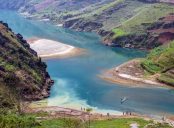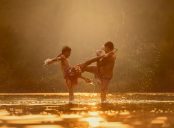Japan: A Fascinating Blend of Tradition and Innovation

Introduction:
Japan, known as the “Land of the Rising Sun,” is a captivating country with a rich and unique culture that attracts travelers from all over the world. From stunning landscapes to ancient traditions, Japan offers a kaleidoscope of experiences that will leave a lasting impression on any visitor. In this article, we will delve into the essence of Japan, its historical evolution, and provide essential insights for those who are interested in exploring this remarkable destination.
A Historical Journey Through Time:

Ancient Origins:
Japan’s history dates back thousands of years, with its earliest known inhabitants arriving around 30,000 BC. The Japanese archipelago evolved its distinct culture, influenced by neighboring regions such as China and Korea. During this time, indigenous practices, such as Shintoism, a nature-based religion, began to develop, shaping the spiritual beliefs of the Japanese people.
Feudal Japan:
The feudal period, spanning from the 12th to the 19th century, witnessed the rise of powerful samurai warriors and the establishment of a feudal hierarchy. This era was characterized by strict social classes, with the samurai serving as the ruling military class, and the emperor as a figurehead. Visitors to Japan can still witness remnants of this era through preserved castles, such as the Himeji Castle, which stands as a testament to Japan’s feudal past.
The Meiji Restoration:
The late 19th century marked a significant turning point in Japan’s history, known as the Meiji Restoration. This era saw Japan undergo rapid modernization and embrace Western influences. The once-isolated nation opened its doors to foreign trade and began implementing reforms across various sectors. The Meiji Restoration propelled Japan into becoming a major global player, with advancements in industry, technology, and social structures.
World War II and Post-War Rebuilding:
Tragically, Japan’s growth was interrupted by its involvement in World War II. The country faced immense devastation, including the atomic bombings of Hiroshima and Nagasaki. However, Japan’s resilience shone through as it embarked on a remarkable path of post-war reconstruction. Through sheer determination and innovation, the nation rebuilt its cities, infrastructure, and economy, emerging as an industrial powerhouse just a few decades later.
Modern Japan: A Harmonious Fusion of Tradition and Innovation:
Cultural Richness:
Japan’s cultural heritage is an integral part of its identity. Traditional arts, such as tea ceremonies, kabuki theater, and ikebana (the art of flower arrangement), continue to flourish. The elegance of geisha culture, with its meticulously crafted garments and graceful performances, mesmerizes visitors to this day. At the same time, modern Japan thrives on innovation and technological advancements, blending the old with the new to create a harmonious coexistence.
From Bullet Trains to Robotics:
Japan’s reputation as a hub of technological innovation is well-deserved. It is home to cutting-edge advancements in electronics, robotics, and transportation. The famous bullet trains, capable of exceeding speeds of 300 km/h, provide an efficient and reliable mode of transportation for both locals and tourists. Moreover, Japan’s fascination with robots is apparent, with humanoid creations such as ASIMO captivating audiences with their lifelike movements.
Culinary Delights:
Japanese cuisine is renowned worldwide for its exquisite flavors and meticulous preparation. From delicate sushi and sashimi to hearty bowls of ramen, Japan offers a vast array of culinary delights. Japanese cuisine emphasizes freshness and aesthetics, with dishes often showcasing seasonal ingredients. Visitors can explore bustling food markets, such as Tokyo’s Tsukiji Market, to savor the essence of Japanese gastronomy.
Natural Wonders:
Japan’s diverse landscapes are a testament to its natural beauty. From snow-capped mountains to picturesque cherry blossom-filled parks, there is no shortage of breathtaking scenery to behold. Mount Fuji, an iconic symbol of Japan, stands tall as the highest peak in the country, attracting climbers and nature enthusiasts from all corners of the globe. Additionally, the tranquil beauty of Japan’s traditional gardens, such as Kyoto’s Kinkaku-ji, offers visitors moments of serene contemplation.
As we conclude our exploration of Japan, we can truly appreciate the captivating blend of tradition and innovation that defines this remarkable country. From its ancient origins to its modern-day technological advancements, Japan’s ability to honor its past while embracing the future sets it apart. For those seeking adventure and a deeper understanding of a culture that seamlessly blends old and new, Japan stands as an enticing destination waiting to be explored.
References:
– Bullet train image source: [Image source link]
– Kinkaku-ji image source: [Image source link]





















